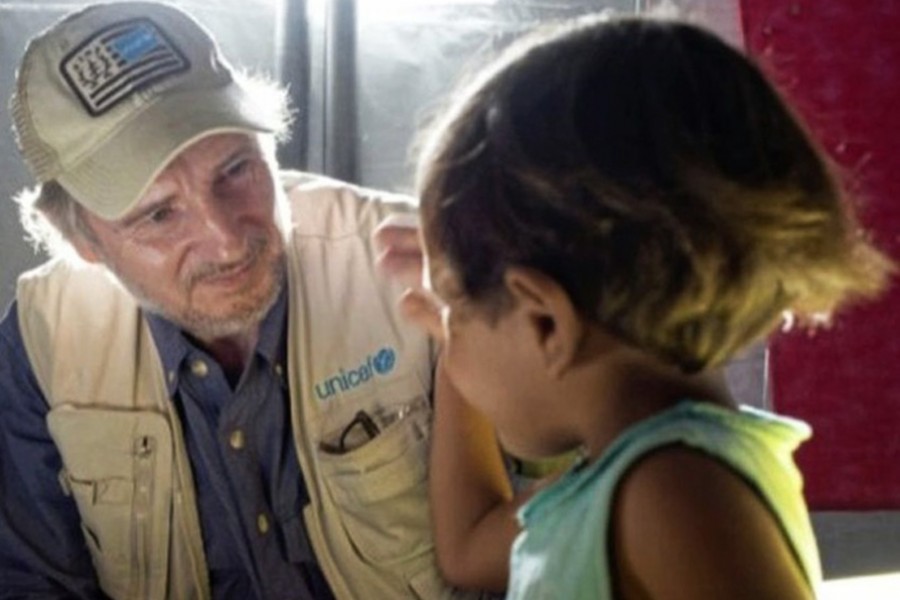UNICEF Goodwill Ambassador Liam Neeson is leading UNICEF’s global immunisation initiative with a global message thanking the scientists, parents, health workers, and others who have been so critical in helping to immunise children over the last two decades.
Every like, share, or comment on posts mentioning a UNICEF social media account and using the hashtag #longlifeforall from now until May 10 will unlock US$1.0 to UNICEF, from the United Nations Foundation’s Shot@Life campaign and the Bill & Melinda Gates Foundation – up to a total of $10 million – to help ensure all children get the life-saving vaccines they need.
In a video released ahead of World Immunisation Week, Neeson talks about how the efforts of scientists such as Jonas Salk, who developed the first vaccine against polio, and dedicated workers who fill vials at factories or deliver vaccine injections, have made it possible to save two to three million child lives each year.
“Vaccines are a remarkable human success story. Over the last 75 years, billions of children have been vaccinated, thanks to scientists, to health workers, to volunteers. If you’ve ever been vaccinated, or vaccinated your children, then you are part of the arm-to-arm chain that keeps all humanity safe,” said Liam Neeson, UNICEF Goodwill Ambassador.
“We live our lives free of worry about catching smallpox. Once a terrifying diagnosis, polio is no longer a threat in most of the world. The conversation about vaccines in recent years has lost sight of how much good they have done for each of us. We need to celebrate this. It is perhaps one of the biggest collective achievements in human history,” Liam added.
Despite the successes, an alarming 23 million children missed out on vaccinations in 2020. This number can only be reduced through greater commitment and investment in immunisation services.
“The last two years have taught us that a health care system that leaves some children exposed, is a health care system that leaves all children exposed,” said UNICEF Executive Director Catherine Russell.
“The best way for the world to recover from this pandemic – and to prepare for future health emergencies – is to invest in stronger health systems, and immunisation and essential health services for every child,” Russell said.


